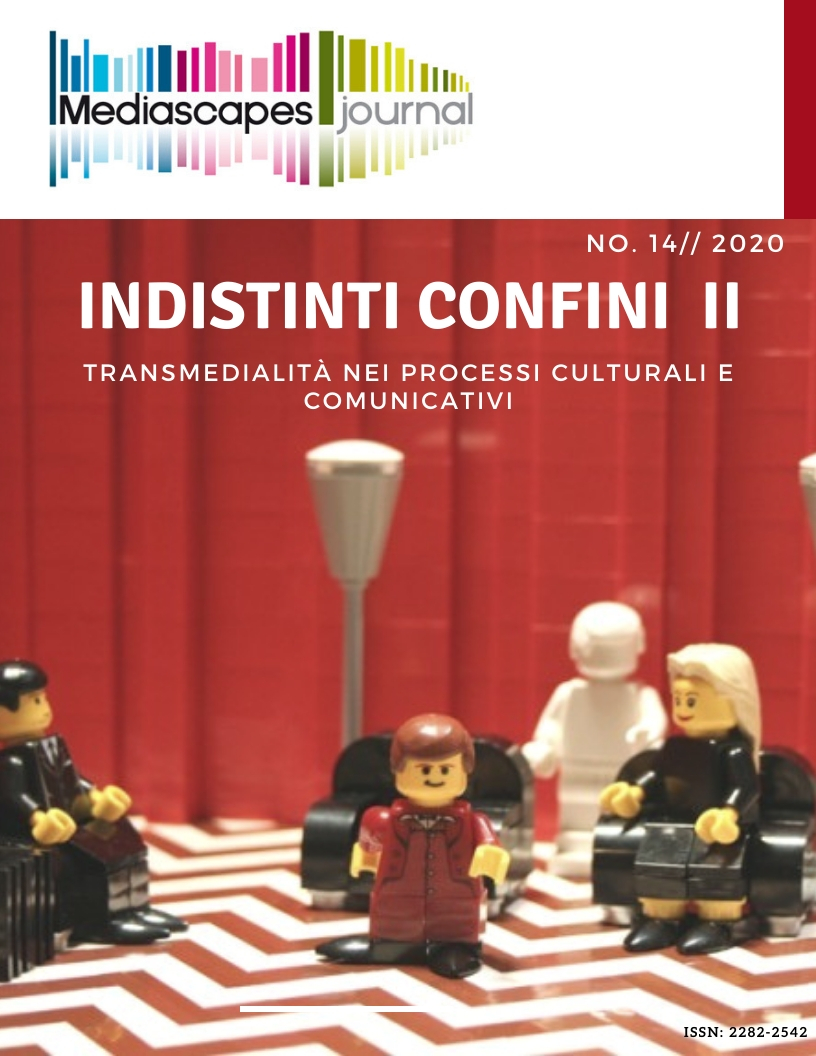Post-media: volubilità e volatilità del meta-medium digitale
Keywords:
Media studies, Over the top Television, Netflix, AudienceAbstract
The dynamics of today's culture are characterized by the increase of their interactive complexity and medial fluidity. The media becomes “liquid” thanks to the convergence of the entire media system towards a single, digital, language that tends to erase any existing difference among different media forms, fostering the emergence of a single meta-medium, as defined by Lev Manovich. Software, by its "nature", evolves with great dexterity thanks to the lack of links with material infrastructures. Once the hardware becomes a sufficiently standardized base, platforms take over any form of media reorganization. A deep sociological reflection cannot avoid considering the transformations and accelerations of the media scenario, to try to grasp its changing reorganization and better understand the nature of the “environments” where social relations take place. Within this panorama, we try to trace some of the trajectories that will characterize the merging of practices up to question the very concept of the competitive market. We move away from the mechanical rigidity of the twentieth-century industrial-cultural model, describing a scenario in which media practices transmute, through the influence of new technologies, into a new amalgam that brings together different methodologies, habits, organizations and knowledge systems; the spectator finds himself at the centre of the narrative thanks to interactive approaches ranging from narrative to audio-visual and videogames.The first decade of the 21st century saw a multiplication of media and content choice options. Market trends clearly show that media multitasking (e.g. the simultaneous use of TV and the Internet) has become part of the emerging patterns of media use in an era of media abundance, where the conflict for the conquest of the "time of loisir" (Morin, 1969) of the viewer also erodes physiological needs such as sleep. In this scenario, a series such as Black Mirror – within its experimental episode Bandersnatch - and the videogame Fortnite coexist in the same living space, that mimetic "loisir" whose economic and cultural importance is becoming more and more crucial.
Downloads
Published
How to Cite
Issue
Section
License
Mediascapes Journal is published under a Creative Commons Attribution Licence 4.0.
With the licence CC-BY, authors retain the copyright, allowing anyone to download, reuse, re-print, modify, distribute and/or copy their contribution. The work must be properly attributed to its author. It should be also mentioned that the work has been first published by the journal Anuac.
Having published these contributions for the first time, Mediascapes Journal will have the right to publish them integrally or partially as reprints or possibly as part of a thematic issue, in both digital and printed format.
It is not necessary to ask further permissions both to author or the journal.


